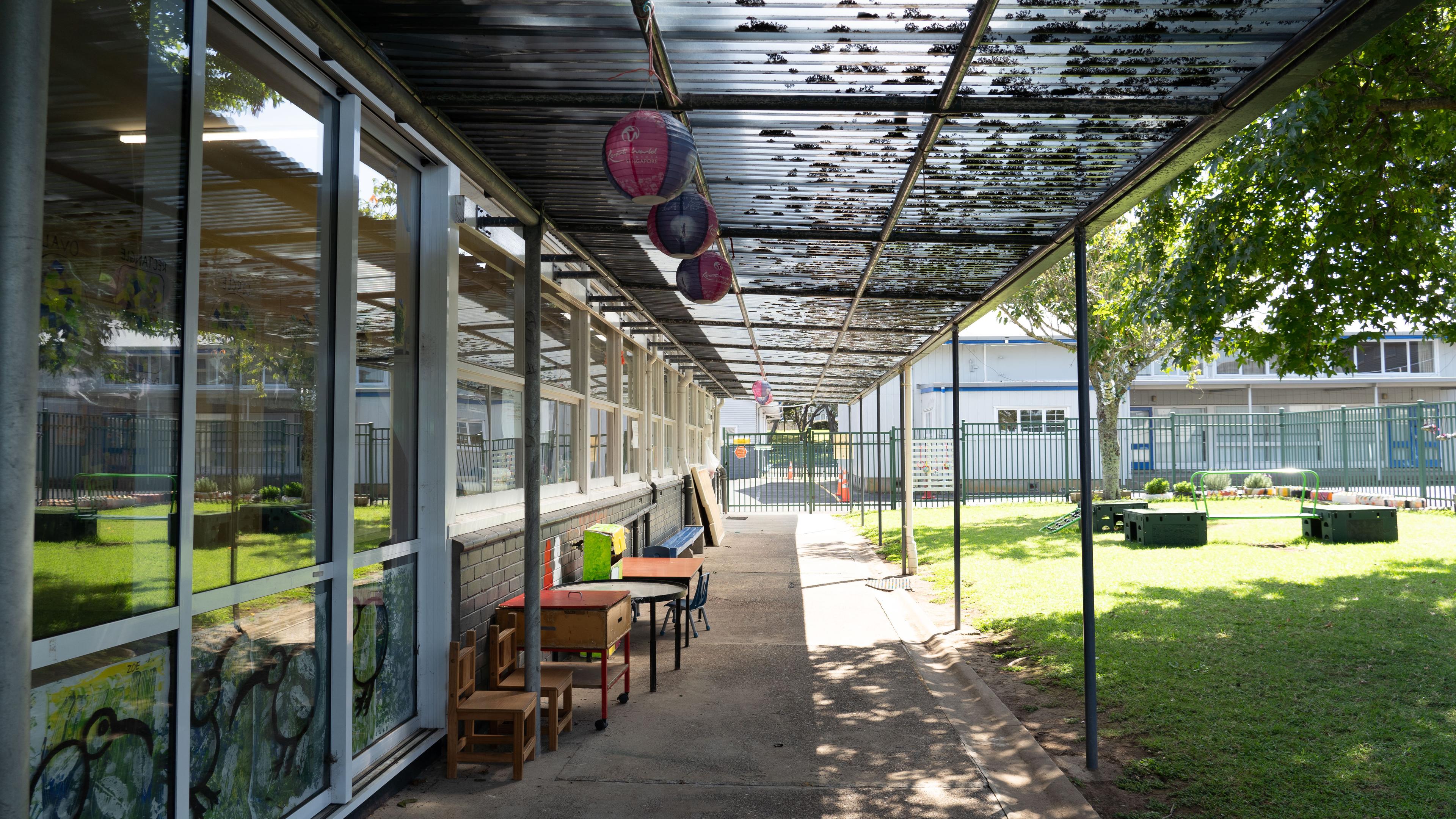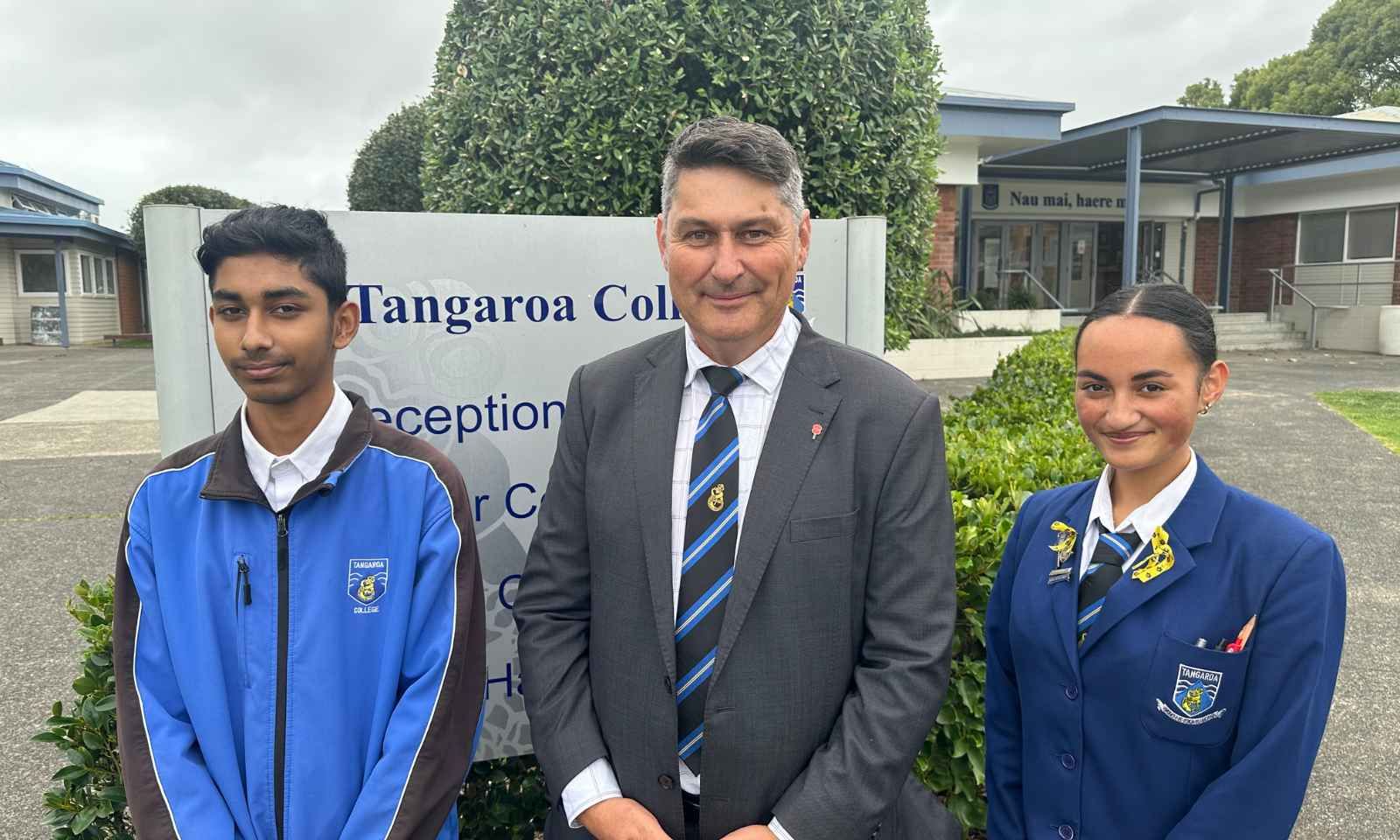

Photo/supplied
'One plan fits all': Psychologist wants better state support for students
Sonia Pope says the coalition Government's proposed changes for schools fails to address the attendance crisis.



Youth MP calls for culturally inclusive mental health reforms for Pacific rangatahi

Pacific leaders demand respectful involvement in memorial service for unmarked graves

Fiji seeking to empower e-passport holders with SmartGate access in NZ


Rising organised crime in NZ: Urgent calls to protect vulnerable migrant workers

Youth MP calls for culturally inclusive mental health reforms for Pacific rangatahi

Pacific leaders demand respectful involvement in memorial service for unmarked graves

Fiji seeking to empower e-passport holders with SmartGate access in NZ
A Pacific education psychologist says the Government’s reporting and enforcement strategy to reduce non-attendance and truancy can not help keep Māori and Pasifika in school.
The Action Plan for Pacific Education 2020–2030 announced the plans on 9 April, including a traffic light system with "clear obligations" for students not attending school and increased data reporting.
“This is part of the Government's target of ensuring 80 per cent of students are present for more than 90 per cent of the term by 2030,” the ministry said in a statement.
But education psychologist Sonia Pope, of Tongan and Niuean heritage, says the current framework will only work well when students find school a positive place.
“And unfortunately the students that I work with, it's just a minority, so it's a tiny bunch," she told 531pi Pacific Mornings.
Watch Sonia Pope's interview below:
Only 46 per cent of school pupils attended classes regularly in term three of 2023 with Māori and Pacific students worst affected, Education Ministry figures show.
Data also show a record number of students took holidays during the 10 weeks from mid-July to mid-September.
Māori and Pacific students had the lowest regular attendance rates at 34 per cent, compared to Pākehā students at 48 per cent and Asian students at 58 per cent.
"So of those are the kind of students who might necessarily see school as a positive place for them," Pope said.
"It might be the root cause of maybe some of the trauma that they might be feeling, the root cause of some of the bullying issues that they experience, some of the mental health issues that come through in terms of anxiety triggering."
Pope questioned the Government's strategy, saying it did not take into account "students who find these places very traumatic, and yet we're forcing them to go into school every single day".
"Unfortunately, that does mean a lot for our Māori and Pacific Island students because the data shows that it's our Māori and Pacific Island students who are the most disadvantaged when it comes to schooling and schooling outcomes."
Principal and students from Tangaroa College recently told PMN News that they are advocating for more community voices to increase school attendance rates.
Some students said the Action Plan could deter students from wanting to attend school.

Tangaroa College principal Chris Bean and students. Photo/Alakihihifo Vailala
Principal Chris Bean is optimistic, saying “constant communication, reaching out to families, and stressing the importance of being here and why we should be here” remained important.
But he said he’s concerned about the effect the end of half-price public transport fares may have on student attendance.
From 1 May, the Government will stop funding free public transport for children aged up to 12 and half-price fares for young people under 25 by the end of next month.
Labour said the Government’s decision to scrap the subsidy at the very time it was supposedly trying to get more children to attend school amid increasing truancy numbers was "completely counter-productive".
It said moves to increase school attendance levels would be seriously undermined.
Bean said he also hopes the free lunches in schools, which Tangaroa College is a part of, continue to be funded as Budget Day approaches (31 July).
Schools and the education system were cited in the latest report by Mana Mokopuna Children's Young People’s Commission, as the place where youth experienced racism, including bullying, more often.
The report - Without Racism Aotearoa would be better: Mokopuna shares their experiences of racism and solutions to end it - included interviews with 161 young people across the country from September 2022 to June 2023.
The youth told the commission about the barriers, stereotyping, and exclusion they had experienced in school, Chief Children’s Commissioner Dr Claire Achmad said.
Watch Dr Claire Achnad's interview below:
This included a sense of being treated differently because of their culture, and that their teachers often had low expectations of their ability, she said.
"The youth also talked about how their culture had been disrespected.
“There are lots of barriers that get in the way of young people being their true, authentic selves,” Achmad told 531pi Pacific Mornings.
Pope questioned the Government's Action Plan saying, "Who is this planned for, and what happens for these minority, these specific students? What kind of plan is out there to kind of support them?
"It's not a ‘one plan fits all’ kind of thing with this kind of action plan that the government is bringing out. Although it's not finished, there's still more news to come."
The ministry said while there is more work to do to support Māori and Pacific students in Aotearoa, in this Action Plan, we have identified the first wave of actions to provide a platform for growth.
"It will be necessary to update these actions on an ongoing basis,” the ministry said.
The Government intends to publish weekly attendance numbers from the second week of term two, 17 July.